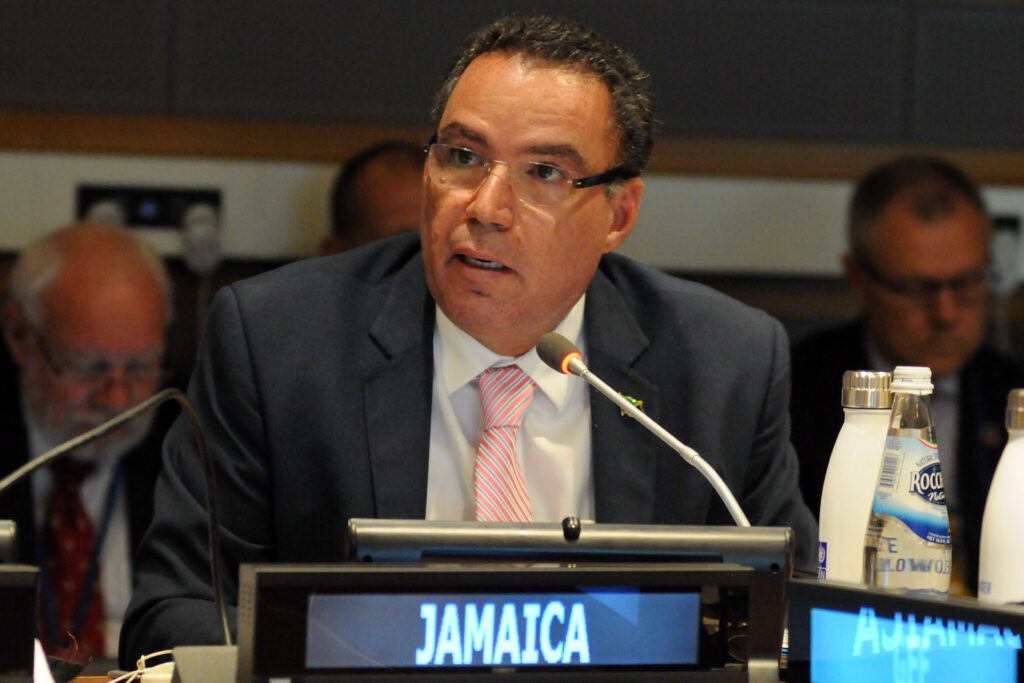
Minister of Science, Energy and Technology Daryl Vaz is committed to bringing broadband to every Jamaican in every corner of the country.
This has become his mission particularly during the current coronavirus (COVID-19) pandemic, which has made people even more reliant upon data devices and the Internet becoming a life necessity.
Education has for all intents and purposes now gone online, with Jamaica’s ability to provide e-learning lessons woefully inadequate.
The two leading telecom companies, Digicel and Flow have faced challenges in providing nationwide coverage and in many instances, their delivery of services and the country’s need to count on them has caused consternation.
This has led to calls for a third player to enter the market and provide more competition. Vaz has been quick to facilitate this and offer spectrum to this new entity.
Below is his address to Parliament outlining plans to make broadband more accessible to the people of Jamaica:
“It is a privilege for me to address this Honourable House so close to the 100-day mark since my appointment as Minister to the portfolio of Science, Energy and Technology.
It is fitting that I use the occasion of the last sitting of the House for this calendar year to outline the work that has been done to support the national response to COVID-19 and to speak to the forward agenda in building a more resilient economy.
Madam Speaker, I crave your indulgence as I take a few minutes to remind this Honourable House of the enormity of the challenge that faces us as a nation and as a people in light of the COVID-19 pandemic:
- Globally, extreme poverty has risen this year – 2020 – for the first time in 20 years. The figures are staggering – an additional 88 to 115 million people have been plunged into extreme poverty this year and this number is expected to increase to 150 million by 2021. Why is this data of particular importance to Jamaica? Precisely because more than three-quarters of the new poor are expected to be in middle-income countries like Jamaica;
- A UNESCO report has advanced that classes have been disrupted for 9 out of 10 children worldwide. This disruption has disproportionately affected poor and digitally illiterate families. Why is this data important? Because long term displacement from the education system will increase inequality for the poorest and the most digitally marginalized in our society;
- The International Monetary Fund in a special report: “A Year Like No Other”, has stated that national governments have taken 12 trillion dollars and 7.5 trillion dollars in fiscal and monetary actions respectively, in response to COVID-19. What is the import of this? Countries, such as Jamaica, face the prospect of increased fiscal deficits and public debt ratios because of increased spending and plunging revenues.
While Jamaica has not been the worst hit by the pandemic, our economy has declined by 10.7% for the January to September 2020 period when compared to the same period in 2019. And, while it is encouraging to see the signs of recovery, we need a whole of country approach to hasten that recovery and to help Jamaicans get back on their feet.

Madam Speaker, my point of departure is intended to confirm the position that has emerged globally that COVID-19 is the worst humanitarian disaster that has faced mankind. The speed and scale of the devastation has been mind-boggling; the impacts on lives and livelihoods have been life-altering, and the disruptions to economies unprecedented.
Let me say that it is an honour to be leading a ministry that is at the forefront of creating a new Jamaica; shaping the country’s digital transformation and; re-defining Jamaica’s enabling infrastructure that underpins the Government’s agenda for the expeditious recovery of the economy and for long term sustainable growth and development. The single most critical imperative that is facing us as a country is to expand broadband coverage across the hills and valleys of Jamaica. This will form the backbone of our recovery and provide the best possible success for sustainable growth.
The National Information and Communications Technology (ICT) Policy, positions ICT infrastructure as a strategic resource, the efficient deployment of which, is important for the provision of public and private services and access to worldwide markets. This, therefore, requires the provision of high capacity networks.

Current data shows fixed broadband penetration at 11.65% and mobile penetration at 59.76%. The distribution is even more troubling with the penetration highly skewed to urban centres while the vast majority of the rural population remains unserved and underserved.
In furtherance of the ICT Policy, Prime Minister Andrew Holness mandated me to establish a national broadband network to scale up e-government infrastructure; strengthen the country’s readiness to operate in the virtual space; hasten the transformation to a new Jamaica built on the foundation of a digital society.
In keeping with that mandate, the ministry has proceeded to leverage the expertise of global thought leaders in ICT to provide high-level advice and strategic guidance and also to bolster the national capacities to build sustainable ICT infrastructures. Thirteen members of the international donor community have indicated an interest in working with us in the digital transformation of the society.
National Broadband Strategy: The ‘backbone of the new Jamaica’
Madam Speaker, already we have secured the assistance of the Inter-American Development Bank (IDB) to develop a national broadband strategy which will support the implementation of this infrastructure. In addition:
1. I have formed a national broadband taskforce, under the chairmanship of Michael Lee-Chin, to provide high-level guidance to the ministry’s team and to ensure that the interaction with the IDB and other stakeholders remains targeted and strategic.
2. A core technical taskforce has also been formed to provide the input and oversight required to drive the implementation of the strategy and the corresponding broadband network as well as to recommend any policy, legislative or regulatory changes that may be required to ensure sustainability.
This taskforce is chaired by the MSET and has membership from the Ministry of Finance and the Public Service; Ministry of Economic Growth and Job Creation; Office of Utilities Regulation (OUR); Spectrum Management Authority; Broadcasting Commission of Jamaica (BCJ); eGov Jamaica Limited; Universal Service Fund (USF); and National Works Agency (NWA).

Over the past few weeks, meetings were held with the technical taskforce and representatives of other key ministries, departments and agencies which have allowed us to: Map the existing broadband infrastructure; map other existing infrastructure which could be leveraged for the deployment of the physical broadband network; identify public sites requiring broadband connectivity and prioritisation of the sites which require same; identify high-level technical specifications of the infrastructure that will be required and the estimated cost for implementation; and identify critical policies, laws and regulations which may be required to ensure sustainability.
This multi-sectoral approach is to ensure that we achieve last mile connectivity to all public institutions. Given the socio-economic parameters of the country, last mile deployment must have a social focus that will see connectivity to main sites such as schools, health centres, community centres, postal points, local municipalities and police stations across the country. This expansion will see significant expansion in coverage of broadband not just to these institutions but directly to the people of Jamaica.
Madam Speaker, this deployment of broadband into the nooks and crannies of Jamaica – deep rural, inner cities, outer cities, urban centres, rural towns will be the single most impactful intervention to eliminate the digital divide that now exists in our country.
Madam Speaker, this Government will make access to the internet a public good. The aim is to have every household, every community connected by 2025.

The clear objectives of the National Broadband Initiative are to: achieve universal access; boost adoption and usage; improve quality and coverage of key services such as health and education and, more broadly, public services; guarantee affordability; promote entrepreneurship and local content creation; create new business models; boost ICT exports; and increase competitiveness.
Madam Speaker, the success of the National Broadband Initiative will require public-private partnerships; improvement in various types of infrastructure such as telecommunication and electricity; and greater coordination in the deployment of public utility services. With respect to public utility services, these critical infrastructures are located within the public rights of way, namely sidewalks and roadways. Unfortunately, there is no policy or legislative framework governing the use of public rights of way.
The MSET and the Ministry of Economic Growth and Job Creation will therefore be working together to fast track the policy and legislative frameworks for the management and use of public rights of way.
In addition, there is the requirement for the strengthening of the broader policy framework to support the National Broadband Initiative. In this regard Madam Speaker, we are far advanced in drafting a Spectrum Pricing Policy to support greater access to spectrum at prices that will promote innovation and use of this scarce resource.
Work is also progressing on the development of Infrastructure Sharing Rules led by the OUR with support from the MSET, to regulate and manage greater access to existing and future telecommunications infrastructure.
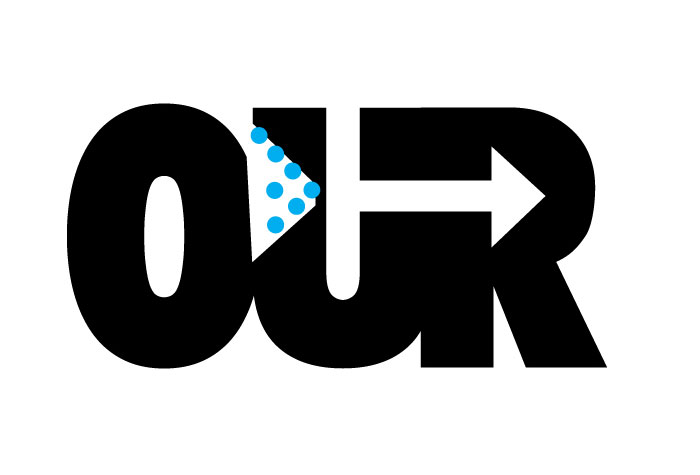
Progress is also being made in developing Quality of Service Standard Rules to prescribe the minimum targets to be achieved and sustained by telecommunications providers in respect of various technical and customer service quality parameters.
Madam Speaker, the estimated cost of implementation of a National Broadband Network is projected to be US$237 million. The funding options are being explored but the country can ill-afford to delay or abandon this strategy.
Allow me to place the financial requirements into perspective. Bridging the broadband penetration gap is expected to generate more than 95,000 direct jobs and will bring Jamaica in line with the Organisation for Economic Cooperation and Development countries. An IDB econometric model specific to Latin American and Caribbean countries demonstrates that, on average, countries that increase broadband penetration by 10% have associated increases of 3.2% per capita GDP and 2.6% increase in productivity.
Madam Speaker, going digital is therefore key to a sustainable economy.
The COVID-19 Response
While we pursue the long term strategy, of more immediacy is the MSET’s role in the national COVID-19 response. There is urgent need for the Government to respond to the challenges posed by the COVID-19 pandemic to ensure that the socio-economic fabric of the country remains intact. The current focus is to see how we can leverage technology to improve outcomes in the education and health sectors.
We are working closely with the Ministry of Education, Youth and Information and the Ministry of Health and Wellness to prioritise the communication needs of schools and health centres. We are taking a targeted approach given the limits on resources to ensure that the solutions that are put in place work for as many Jamaicans as possible in the shortest time frame.

Thus far, we have:
1. Granted access to additional spectrum to telecommunication providers with the waiver of spectrum licence and regulatory fees associated with this grant (with the support of the Ministry of Finance and the Public Service).
2. Waived spectrum licence and regulatory fees on VSAT licences for a period of three months to support the Ministry of Education’s use of satellite technology to bring connectivity to remote schools. Already, almost 100 schools are connected using this medium. VSAT is a small antenna or dish that connects to a satellite orbiting the earth, delivering hi-speed broadband anywhere, anytime.
3. We have negotiated with private owners of fibre optic cables to provide the Government with access to spare fibre strands to assist with the connectivity needs in all parishes. Let me pause here to acknowledge, in particular, the telecommunications providers who have committed to provide access in support of the national response to COVID-19.
Madam Speaker much more is required. As such, the Government, through its agencies, will be implementing three major technology initiatives aimed at increasing access to the internet and electronic educational content for students living in rural and inner city communities. The initiatives are as follows:
Initiative 1: Digital Transmission Network
The Government will be making investments to provide the Public Broadcasting Corporation of Jamaica (PBCJ) with the capacity to broadcast over the air using digital transmission technology.
This decision is grounded in the fact that digital broadcast can reach over 85% of households that own a smart TV set. Smart TV sets already have the ability to receive the digital signal without the addition of external devices.
The Digital Transmission System will enable the PBCJ to provide multiple channels of educational content on a 24/7 basis. This is in recognition that many of our students have fallen behind and will need many hours of remedial lessons to catch up.
For those Jamaicans that do not own a smart TV, all that will be required is an external digital set top box to allow their existing television sets to receive the digital signals. The price of these digital set top boxes range from between JMD$2,500 and $5,000. The necessary preparatory works are in progress and we expect to implement this project over the next six months.
Initiative 2: Expanding Government fibre optic cable infrastructure
The Government intends to make further investments to provide the PBCJ access to high-speed fibre optic communication backbone to connect with rural cable television networks to facilitate internet based information being made accessible to students at home using their computers and tablets. Work on this initiative is far advanced, with the National Works Agency (NWA) working closely with the rural cable television operators to coordinate activities regarding the layout of the fibre optic cable infrastructure.
So far, 18 out of 34 rural cable TV operators are using the fibre infrastructure to get content from the PBCJ. However, more needs to be done to connect the remaining rural cable TV operators to enable them to provide valuable educational material to their subscribers and this is what this second initiative will seek to do.
Initiative 3: Expanding public Wi-Fi hotspots
The Government is to rapidly expand the number of public Wi-Fi hotspots across the country. This is in recognition of our current inability to provide all homes, especially in the rural communities, with access to the internet, which Madam Speaker, will take time.
However, in the interim, we want to ensure that every community has access to the internet and we can only do this by installing public Wi-Fi hotspots in strategic locations where it is easily accessible by the residents of those communities. The Universal Service Fund, working closely with the NWA and eGov Jamaica Limited, is finalising the list of locations suitable for public Wi-Fi installations. I will be relying on my colleague Members of Parliament to send a list with locations within their constituencies that they believe should have public Wi-Fi hotspots.
Since assuming responsibility for the portfolio, I have launched 5 public Wi-Fi hotspots locations under the Connect Jamaica Programme in Chapelton and May Pen, Clarendon; Port Antonio, Portland; Ocho Rios, St Ann; and Annotto Bay in St Mary.

This brings to 13, the number of public Wi-Fi hotspots across Jamaica.
Madam Speaker, providing connectivity is good but without the ICT instruments, that asset would be largely underutilised. That is why the distribution of tablets to teachers and students is of such vital importance. This programme started prior to the pandemic, but the needs of the education sector required a review of the approach to the distribution which saw us placing an emphasis on distributing tablets to students themselves and not to the educational institutions.
So far, 23,946 tablets have been distributed under the Tablets for Teachers Programme and 34,219 tablets to students under the Tablets in School Programme.
Madam Speaker, the Government’s investment under the Connect Jamaica and tablet distribution programmes amount to US$11.1 million or upward of 1.6 billion Jamaican dollars.
Conclusion: A new Jamaica with access to the last mile
Madam Speaker, I will end where I started. COVID-19 has dealt a crushing blow to the global economy, setting the stage for one of the worst humanitarian crises ever experienced by the human family. It has ended lives and upended livelihoods. Jamaica, though not the worst hit, has not been spared.
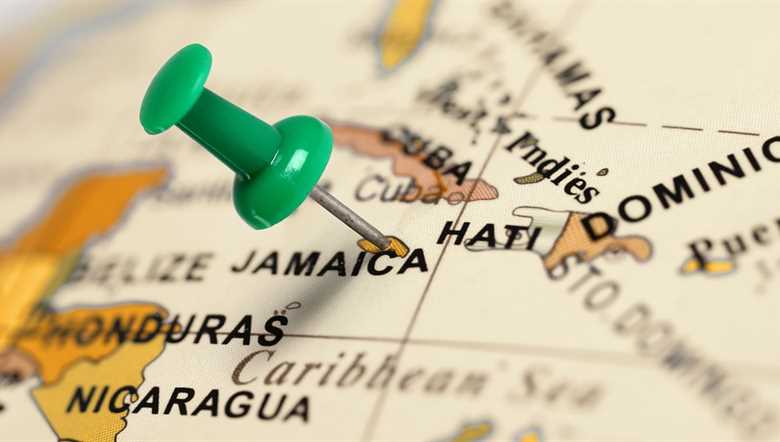
While our Government has delivered the largest fiscal intervention to assist firms and to help Jamaicans recover, this is not a sprint. We are embarking on a marathon to build resilience and achieve sustainable growth and development. The road to recovery will be hard but inspiring leadership requires that we bring the Jamaican people to the table as constructive participants in this once in a lifetime opportunity to build back stronger and better and to create a new Jamaica built on the foundations of a digital society.
Madam Speaker, how will the National Broadband Network transform Jamaica?
- More than 1,500 kilometres of fibre optic cable will be laid to provide access to the last mile.
- More than 1,000 public institutions connected to guarantee access to the last mile;
- Universal access to the internet by every household, every community, every Jamaican; and
- Access to public services everywhere, anytime.
Madam Speaker, I commit to [using] the resources of this ministry and my influence to help our people hope and dream again as we move to create a new Jamaica with internet access to the last mile for every single Jamaican.

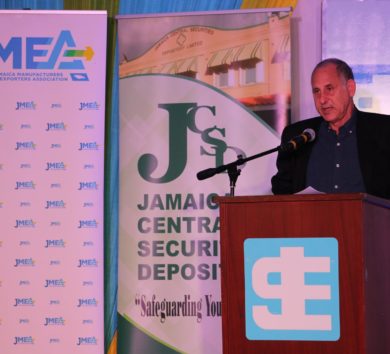
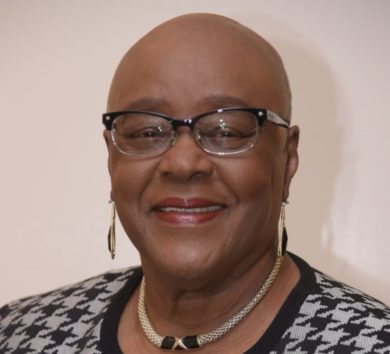

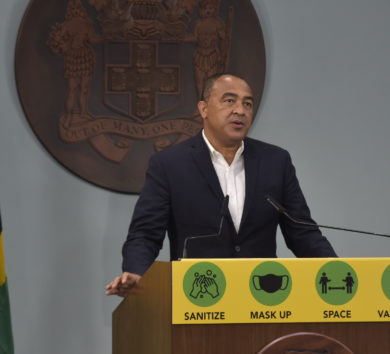

Comments